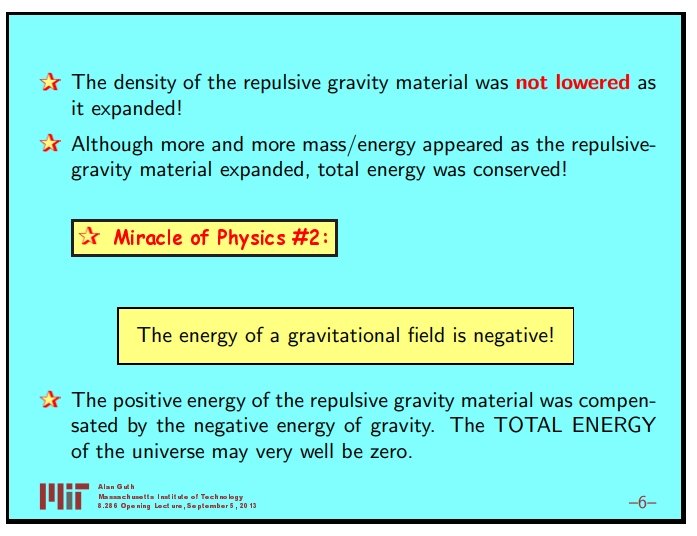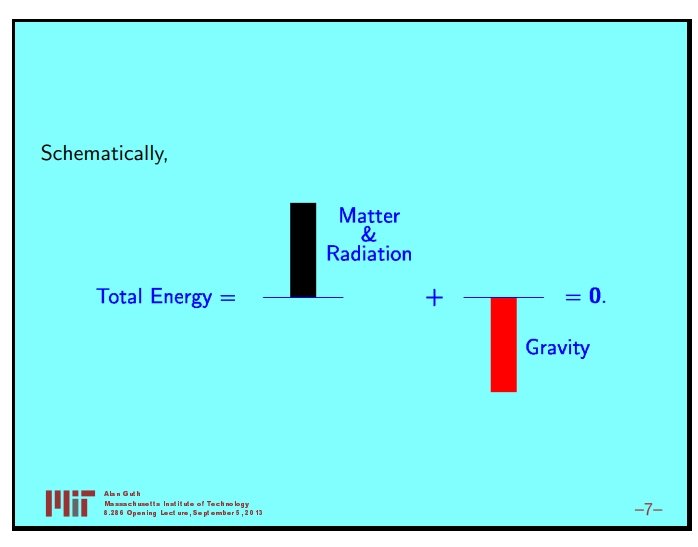-
Posts
5373 -
Joined
-
Days Won
52
Content Type
Profiles
Forums
Events
Everything posted by Genady
-

Cosmological redshift, thought experiment
Genady replied to Genady's topic in Astronomy and Cosmology
The metric is a local thing, there is no one universal metric of the universe. The cosmologically expanding metric is metric of a homogenous isotropic space. It works for places which are far away from inhomogenous gravitational sources and also for scales at which the universe 'becomes' homogenous and isotropic. I think this scale is of the order of 100 Mpc. In fact, we observe today galaxies at redshift of order 1 and more. They would be twice or more larger than the galaxies close to us. But they are not. -

Cosmological redshift, thought experiment
Genady replied to Genady's topic in Astronomy and Cosmology
If this atom is placed in a local gravitational field, especially close to a large mass like black hole for example, its frequency will decrease. That's why I insist in the thought experiment above that the box is away from such bodies. The atom's frequency will stay constant in those conditions. -

Cosmological redshift, thought experiment
Genady replied to Genady's topic in Astronomy and Cosmology
Yes, absolutely unconditionally sure. Bounded systems do not expand with cosmological expansion. Galaxies are gravitationally bound. -

Cosmological redshift, thought experiment
Genady replied to Genady's topic in Astronomy and Cosmology
To the contrary, we can and we do. The exact modern definition, from the National Institute of Standards and Technology is: "The second, symbol s, is the SI unit of time. It is defined by taking the fixed numerical value of the cesium frequency ΔνCs, the unperturbed ground-state hyperfine transition frequency of the cesium 133 atom, to be 9192631770 when expressed in the unit Hz, which is equal to s⁻¹." (wiki) For a standard unit of distance you can take a distance that light covers in one standard unit of time. -

Cosmological redshift, thought experiment
Genady replied to Genady's topic in Astronomy and Cosmology
The box keeps its shape and size. The atoms of the material it is made of do not expand, distances between atoms do not expand as the universe expands. The walls of the box do not move relative to each other. E.g. the distances between far away galaxies increase, but the galaxies themselves do not grow as the universe expands. -
Imagine a box with internal walls covered with mirrors. A light /photon bounces inside the box from mirror to mirror. The box is placed far away from gravitating bodies, somewhere in the homogenous and isotropic universe. As the universe expands, will the light inside the box redshift? (My answer, No.)
-

Does a Static EM Field Acquire Mass Due to Stored Energy?
Genady replied to exchemist's topic in Relativity
No, I just mean mirrors. I take a box with internal walls being mirrors, let light in, say, through a little opening. Light just bounces inside from mirror to mirror (we can close the opening to make sure it doesn't escape). The mass of the box increased. -

Is human language a result of our brain becoming 'digital'?
Genady replied to Genady's topic in Speculations
This is surprising. We once had adopted a rottweiler from a foreign speaking family and she had to do the same, except one other dog rather than two. She was fluent in a couple of weeks. She was 2 yo, maybe that was a factor, if your shepherd was older. It was interesting to observe how the other dog taught her the rules of the house. -

Does a Static EM Field Acquire Mass Due to Stored Energy?
Genady replied to exchemist's topic in Relativity
Of course. I should've said "such as that of light" or something similar. Otherwise, yes, this is what I mean. I have a picture in mind where the light remains light, i.e. is not absorbed in a sense of being converted into something else. It will be there with no mass, but the entity will gain mass still. -

Does a Static EM Field Acquire Mass Due to Stored Energy?
Genady replied to exchemist's topic in Relativity
They do "go hand in hand" ( @exchemist) but they are different nevertheless. Energy is additive, mass is not. Energy with no mass, such as light, can be added to something and that something will acquire extra mass. -

Brain teaser: travelling faster than the wind.
Genady replied to Arthur Smith's topic in Brain Teasers and Puzzles
I think that - in the right handed coordinates - if the angular momentum of the spinning tube is toward Z and the wind is toward Y then it moves toward X. -
If there were an actual evidence of a real J of N, wouldn't everyone know it by know? Would Church let it go?
-

Is human language a result of our brain becoming 'digital'?
Genady replied to Genady's topic in Speculations
I think so as well. I just don't see concepts behind this ability, but rather memory, recognition, association, learning, which even a worm with 300 neurons can do. Perhaps, 'arbitrary' is a wrong word. What I meant is that this categorization is not universal ("objective"), but rather individual, cultural, temporal, conditional, etc. It is not about evolution of a language or languages, but rather about evolution of brain that allowed a language. There is nothing special about English in this respect. All languages have differences in how they categorize outside world. English is a first language for a child growing up in an English speaking environment, etc. Later they might learn other languages, and they will have to adjust some concepts because these other languages segment world differently. There are many aspects to 'language'. Most obvious is a communication tool. Surely other animals have this. Plants and bacteria have it too. However, communication is not the only characteristic feature of a human language. Among others are: Displacement; animals seem to communicate only about a given environment at hand; we can refer to past and future times, removed or even not existing places, things, and events Cultural transmission; dogs speak dog language and cats speak cat language, but we speak a language that we acquire from the culture we grow up in, i.e. we don't inherit any language, only an ability for a language (I know that some birds and whales learn their songs from others; but without the others, they will sing anyway, just not that good; humans growing without others don't produce any language) Productivity; human language is continuously changing, adding new words and structures, is "open-ended", potentially infinite; communication systems of other creatures are essentially pre-set, they have fixed references, they apply the same repertoire in the new situations There are no indications that other animals have a language with such characteristics. OK, this is a different hypothesis. -
I assume that words in a language represent concepts in the brain. The concepts seem to be discrete categories made up by the brain from a continuous experience, more or less arbitrarily. Here are some examples: the English concepts 'shade' and 'shadow' correspond to one concept in Russian, represented by the word 'tien' the English concepts 'table' and 'desk' correspond to one concept in Russian, 'stol' the English basic color 'blue' doesn't have a corresponding concept in Russian, but is rather covered by two distinct basic color concepts, 'sinij' and 'goluboj' I hypothesize that other animals perceive and process outside world as a continuous signal, while our brain evolved an ability to 'digitize' the continuous signal and to process it in discrete categories. This ability became a basis for our ability to use language.
-
Today I learned a new term: WEIRD societies = Westernized, Educated, Industrialized, Rich, and Democratic.
-

Nothing can come from nothing so something always existed!
Genady replied to martillo's topic in Speculations
I do have some idea what 'nothing' and 'something' means, but I don't have any idea what is 'potential for /of /to something'. If you mean that it happened because it could happen, then it seems just circular, i.e. it could happen because it happened. -

Nothing can come from nothing so something always existed!
Genady replied to martillo's topic in Speculations
Here are two slides from Alan Guth's lecture 1 in the MIT class on Early Universe. He has explained there how something can come from nothing while obeying the energy conservation. Don't worry about his use of word "miracle". He uses its meaning as "a very amazing or unusual event, thing, or achievement" (Merriam-Webster) -
When I Heard the Learn’d Astronomer BY WALT WHITMAN When I heard the learn’d astronomer, When the proofs, the figures, were ranged in columns before me, When I was shown the charts and diagrams, to add, divide, and measure them, When I sitting heard the astronomer where he lectured with much applause in the lecture-room, How soon unaccountable I became tired and sick, Till rising and gliding out I wander’d off by myself, In the mystical moist night-air, and from time to time, Look’d up in perfect silence at the stars. Perhaps Walt Whitman came to the lecture unprepared. He didn't know how much depth, beauty, perspective he missed. I wonder, who the "learn'd atronomer" was?
-
-

Does a Static EM Field Acquire Mass Due to Stored Energy?
Genady replied to exchemist's topic in Relativity
(I retracted an erroneous edit only.) It is correct that all these masses have to be put in by hand. Finding the Higgs boson supports the mechanism, nevertheless. (I don't think the OP had any of this in mind. It asked about a mass of the field.) -

Does a Static EM Field Acquire Mass Due to Stored Energy?
Genady replied to exchemist's topic in Relativity
It would work for me. But, how it reconciles with the SM where particles get their mass from interaction with the Higgs field? Edit: Retracted. -

Does a Static EM Field Acquire Mass Due to Stored Energy?
Genady replied to exchemist's topic in Relativity
Yes, I wondered where the subject has changed from 'field' to 'electron'. And with no input from the OPer.




